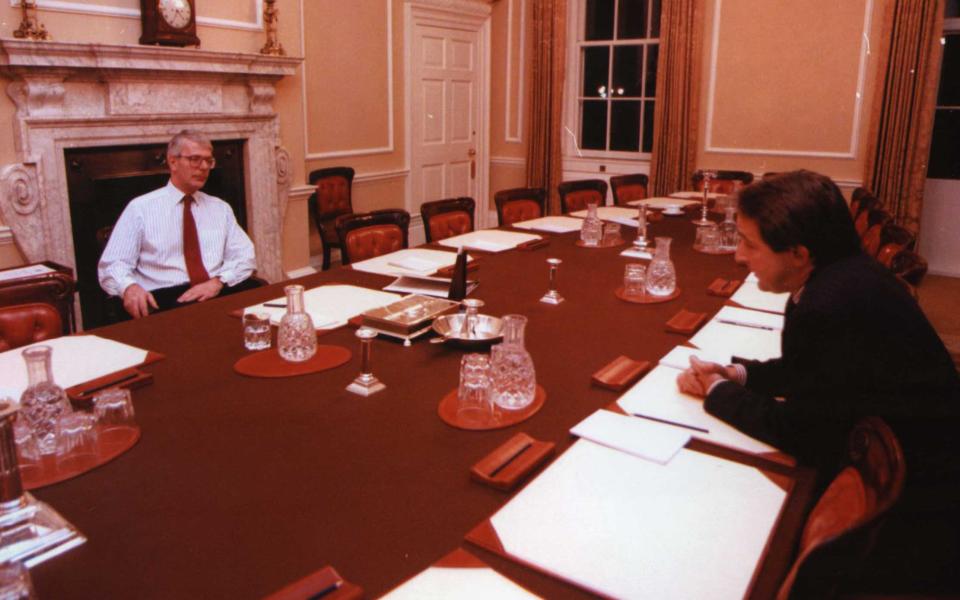Political historian Sir Anthony Seldon quit university in row over ‘serious financial mismanagement’

Sir Anthony Seldon stood down as vice-chancellor of the University of Buckingham amid an investigation that uncovered serious financial mismanagement, The Telegraph has learnt.
The political historian and honorary historical adviser to 10 Downing Street left the university in 2020, months after the Charity Commission began looking into the university’s governance - including a risky deal to create a medical campus 120 miles away in Crewe, Cheshire.
An internal investigation found that the deal agreed by the university with Apollo Hospitals, an Indian healthcare provider, and Michael Jones, a former Conservative councillor, was signed with “no independent due diligence”. It also found that the deal locked the university into paying £40 million in rent over a decade - far more than the income that it was likely to receive from the campus.

The university’s latest accounts for 2019 - delayed by more than a year as a result of the investigation - revealed that the deal created financial uncertainty for the university, which expects to pay more than £6 million to exit the lease agreement.
There are currently about 200 students enrolled at the 40-acre Apollo Buckingham Medical Health Campus, which opened in 2019 and has the capacity for 5,000 students.
Other findings of the investigation included that one of the university’s subsidiaries had wrongly claimed back £808,000 from HM Revenue and Customs in previous years which it needed to repay.
Sir Anthony was appointed vice-chancellor of the University of Buckingham in 2015 after standing down as master of Wellington College, the boarding school in Berkshire. He is the author of more than 40 books on contemporary history, including on the last five prime ministers.
During his tenure at the university, he published multiple books - including May at 10, on Theresa May’s premiership - and was a director of the Royal Shakespeare Company.

The University of Buckingham was founded by his father 46 years ago. Margaret Thatcher is a former chancellor of the university.
The idea to create a medical campus in Crewe with Apollo had been pitched to Sir Anthony by Mr Jones, a former leader of Cheshire East Council, and Amanda Weston, his business partner and physiotherapist.
The partnership with Apollo and a community interest company run by Mr Jones and Ms Weston was finalised by December 2018, when it was announced by the university as a “landmark international deal”.
The investigation in 2020 found that a former university staff officer had “placed themselves in a position of conflict of interest” with that of the university.
The findings are understood to relate to Paul Jennings, the university’s finance director, who was the driving force behind the campus deal, and his relationship with Mr Jones and Ms Weston, who are said to have discussed giving him shares in another company previously involved in the campus.
Ms Weston told The Telegraph that a discussion about giving Mr Jennings shares in the company was “momentary” when they were “throwing around ideas” and nothing had come of it because of the potential conflict of interest. The investigation concluded that there had been “no inappropriate loss of cash” from the university. Mr Jennings and Mr Jones could not be reached for comment.
Mr Jones stood down as chief executive of the Crewe campus in January 2021, according to Ms Weston.
The Charity Commission concluded that its investigation was closed in Sept 2021 after the university submitted more than 100 documents to evidence its “improved approaches to governance and management”.
It has cost the university almost £2 million in fees to ensure its accounts are accurate and conclude the investigations.
‘The predicament was making me ill’
In a statement, Sir Anthony said: “As vice-chancellor, I made it repeatedly clear that I did not agree to entering into any relationship with the Crewe project if it was to pose any financial risk whatsoever to the university.”
He said that after meeting the community interest company, he “refused to have any further contact with them”.
He added: “I felt I knew how to turn around institutions, but my leadership was no longer valued and I was unable to run the university as I knew it should be run. The predicament was making me ill, so I quit after my five years, saddened to leave my colleagues, students and community, and to see the progress we had made together in my first four years - the financial accounts in early 2019 noted that the outlook for the university had never been brighter with numbers, new buildings and reputation never higher - put under threat.”
A spokesman for the University of Buckingham said: “The new administration raised the issue of historic arrangements that had been entered into not being appropriate. We then undertook a very thorough audit which uncovered some issues in the past with financial processes.
“We made the full financial provision for the potential impact of those arrangements in our 2019 financial statement. We fully investigated the suggestion of a member of staff having a conflict of interest and this issue was resolved.
“There was no indication of criminal activity. We have fully disclosed the VAT wrongly claimed to the HMRC to settle the matter. No staff are under investigation. We have made a lot of progress with the Crewe negotiations but there are some outstanding matters to address.
“The 2020 financial return shows a much-improved financial situation and the university’s future is secure. After the difficult year of 2019, the university is now in a solid position. Student acceptances are up by nearly 20 per cent on 2019.
“The university is making steady progress rising in the league tables. In the Good University Guide (2022), we climbed 20 places to regain our position in the top 100.”

 Yahoo News
Yahoo News 
